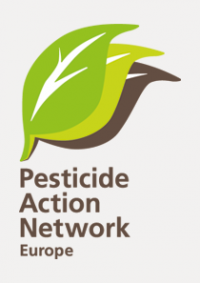Briefings
Joint Statement on the revision of lists of surface and groundwater pollutants
As a joint alliance of EU health and environmental civil society organisations we hereby share our main policy recommendations on the update of the lists of surface and groundwater pollutants under the Water Framework Directive (2000/60/EC – WFD), the Environmental Quality Standards Directive (2013/39/EU – EQSD) and the Groundwater Directive (2006/118/EC – GWD).
PAN Europe’s Position Paper on the EU proposal for a Regulation on Sustainable Use of Plant Protection Products
On 22 June 2022, the European Commission published its proposal for a Regulation on Sustainable Use of Plant Protection Products (SUR) and repeal the current EU Directive (128/2009/EC) on the Sustainable Use of Pesticides (SUD).
Application of EU health and environmental standards to imported agricultural and agri-food products: Contribution to the call for evidence
The European Commission is consulting stakeholders on the rationale and legal feasibility of applying EU health and environmental standards (including animal welfare standards and processes and production methods) to imported agricultural and agri-food products. PAN Europe welcomes the opportunity of providing feedback and proposes below concrete actions to ensure greater consistency between the pesticide residue standards applied to domestic production and those applied to imported products.
Updated version: Position paper on the development of a risk assessment of pesticides on bumblebees and solitary bees
While the collapse of biodiversity is not questionable anymore and, particularly, that of insects, the pace of improving the situation at the pesticide regulatory level is extremely slow. The revision of existing guidance documents and the development of new ones are lengthy processes that do not correspond to the urgency of the environmental situation.
Position paper on the revision of the Sustainable Use of Pesticides Directive
The European Commission will present a proposal for a new Pesticide Reduction Regulation on 23 March 2022. That will be the start of a discussion with the European Parliament and the member states. It will lead to important discussions in all EU countries that should not be dominated by the lobbyists for the industrial farming model.
Pesticide checklist on National Strategic Plans of the Common Agricultural Policy
The European Union has agreed to reform EU’s Common Agricultural Policy (CAP) and, as part of that, Member States (MS) need to prepare National Strategic Plans (NSP) by end of 2021. The European Commission is currently reading and commenting on the plans.
Factsheet: Contribution to the EU feedback mechanism on Sustainable Food Systems – new initiative
The European Commission has published an Inception Impact Assessment to inform citizens and stakeholders about the Commission's plans to move EU towards development of Sustainable Food Systems aiming at allowing citizens to provide feedback on the intended initiative and to participate effectively in future consultation activities.
PAN Europe and PAN International call on WHO and OECD to reject and condemn EFSA's methodology to assess cocktail effects of pesticides
Today, PAN Europe and PAN International are calling on the WHO and the OECD, via a letter, to reject and condemn EFSA's methodology to assess cocktail effects of pesticides. Salomé Roynel, Campaigner at PAN Europe commented: “In this letter we argue, based on our work, that EFSA's methodology is inherently biased.
PAN Europe’s position on the technical guidance on negligible exposure
Technical guidance on points 3.6.3 to 3.6.5, and 3.8.2 of Annex II to Regulation (EC) No 1107/2009, in particular regarding the demonstration of negligible exposure to an active substance in a plant protection product under realistic conditions of use.
How to best address cocktails effects in the Pesticide legislation? Towards the implementation of a Mixture Assessment Factor (MAF): PAN Europe’s Position Paper
The protection of EU citizens from pesticide cocktail effects, a legal and political commitment of the EU. EU citizens and the environment are continuously exposed to many different combinations of chemicals, including pesticide formulations, both in indoor and outdoor environments (food, water, air, etc.). On their own, synthetic pesticide formulations (or plant protection products) already raise significant concerns.
